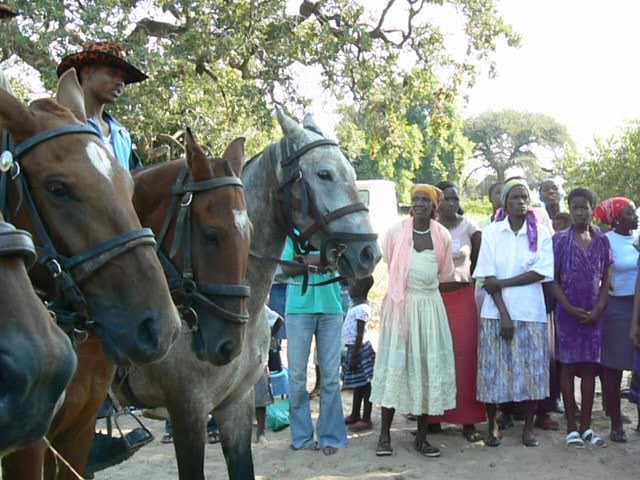
Botswana: Tribal recognition and equality for the Wayeyi
Kamanakao Association, RETENG and Minority Rights Group International v Botswana
Botswana’s laws, including the Tribal Territories Act and the Chieftainship Act, only recognise the dominant Tswana-speaking tribes, denying the remaining 38 non-Tswana speaking tribes access to representation in the House of Chiefs. Following a finding of the discriminatory nature of these laws by the High Court in 2001, failure of the Botswana Government to comply with the judgment and subsequent engagement of CERD by the Wayeyi, the Botswana Government then embarked on drafting of a new law, which left the discriminatory provisions in place thus only effecting superficial changes to the Act. In 2007, a case was filed before the African Commission on Human and Peoples’ Rights, which led to the Botswana Government temporarily granting the Wayeyi access to the House of Chiefs, but only on a discretionary basis. In late March 2008, the inauguration of the Wayeyi Chief took place, but there was no subsequent re-appointment in the next round of elections.
Unfortunately, the case was declared inadmissible by the African Commission towards the end of 2011, on the basis that domestic remedies had not been exhausted, even though other decisions of Botswana’s highest court indicated that such domestic legal action would be futile. After the African Union adopted in 2013 the report of the African Commission, MRG requested a review of the inadmissibility decision based on the African Commission’s own jurisprudence (according to which domestic remedies do not need to be pursued wheredoing so would be futile), but this was denied.
MRG however continues to work with the Wayeyi exploring other advocacy options at the national level on issues surrounding tribal recognition and equality and possible further domestic legal proceedings as well as international advocacy. This includes a three-year EU-funded programme working with two local partners looking at human rights and paralegal training across 5 non-Tswana communities and advocacy around obtaining recognition of these tribes under the Bogosi Act and amendments to the discriminatory Tribal Territories Act.
Key documents:
- Case documents
- Kamanakao Association, RETENG and MRG submission on admissibility in the Botswana case to the African Commission
- Communication of the African Commission on admissibility
- Briefing papers and reports
- Reports from the United Nations
- Committee on the Elimination of Racial Discrimination, Concluding Observations on Botswana, 2006
- Advocacy at the African Commission and the United Nations
- MRG oral statement to the twenty-third session of the Human Rights Council, 2012
- Briefing to the Special Rapporteur on Culture and Permanent Missions on the occasion of the Special Rapporteur’s delivery of her predecessor’s report of her mission to Botswana at the HRC session in March 2016.
- MRG press releases
Credit: MRG